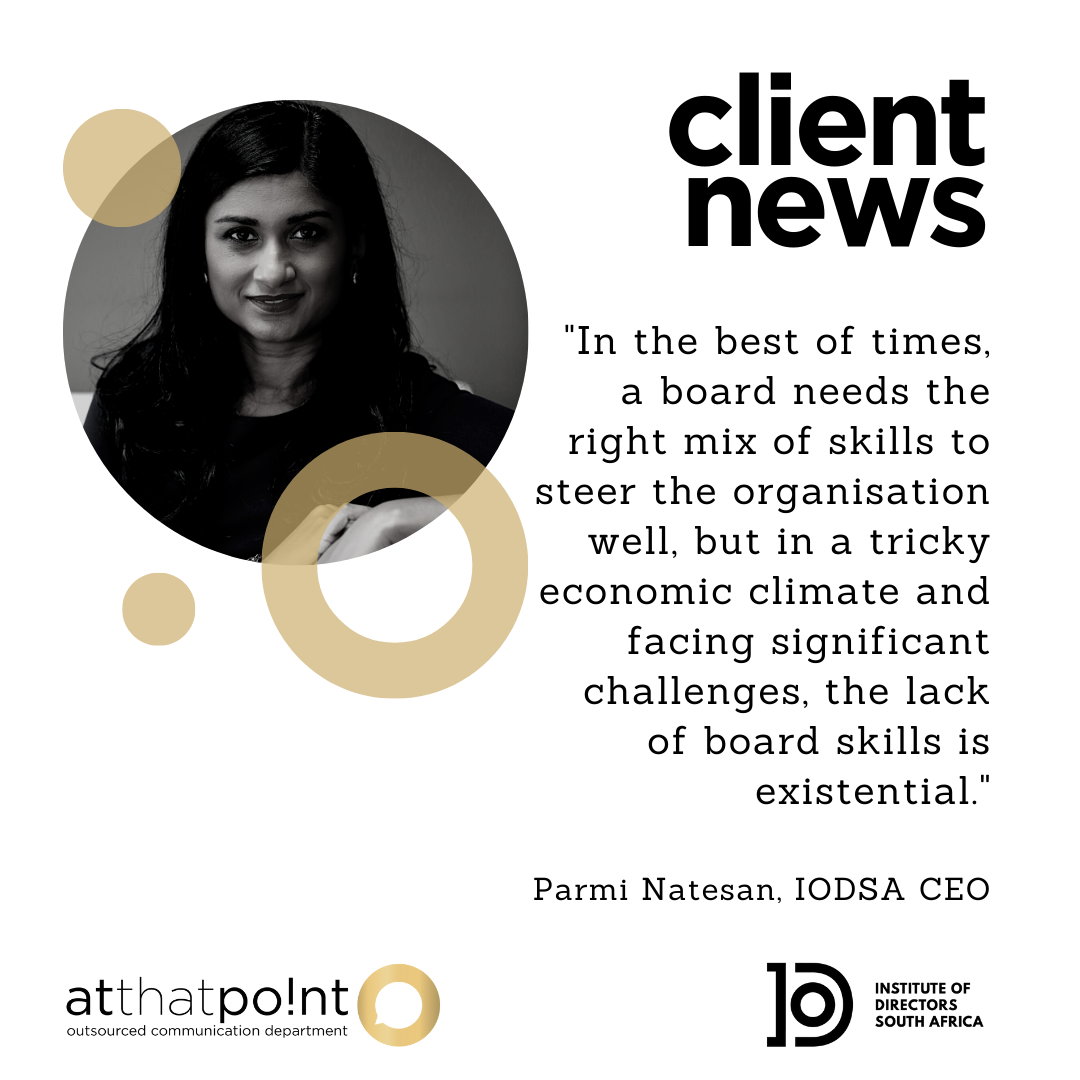 Futuregrowth Asset Management recently raised concerns about the inordinate time it is taking to fill six vacant positions on the Transnet board. These concerns are valid and point to governance issues that should be seriously considered by all boards, says Parmi Natesan, CEO, Institute of Directors in South Africa (IoDSA). “Futuregrowth’s analysis shows that the failure to fill six vacancies in a 12-person board has made it less able to tackle the serious challenges the company faces—a matter of considerable concern given its pivotal role in our economy,” she points out. “In the best of times, a board needs the right mix of skills to steer the organisation well, but in a tricky economic climate and facing significant challenges, the lack of board skills is existential.” For a start, Transnet’s sparsely populated board table means that important board committees like the audit committee, social and ethics committee, and risk committee could be missing critical skills. These committees fulfil vital roles in the governance of the organisation, and particularly in relation to its ability to rise to the challenges it faces. “Organisations and board chairs must pay particular attention to the need for the board to have, in the words of King IV, ‘the appropriate balance of knowledge, skills, experience, diversity and independence for it to discharge its governance role and responsibilities objectively and effectively’ (Principle 7),” Natesan says. A related issue is the fact that the terms of office of the six remaining non-executive directors will expire in May 2024. While the principle of rotating board members in a staggered fashion to ensure that skills are renewed and diversity improved is a good one, it is clearly counterproductive for so many board members to leave at once. “We see this kind of mass reshuffling of boards particularly in the public sector. The motivation behind rotation is good, but it needs to be handled intelligently to ensure that invaluable institutional memory is not lost,” she says. “Organisations need to focus on striking a balance between continuity and renewal.” Another important consideration is succession planning. If board members are going to be rotated regularly, as best practice suggests, then the organisation needs to ensure that individuals with the right skills—including professional directorial skills—are ready in the wings. Succession planning thus needs to proceed in parallel with an ongoing skills audit to ensure that the board understands what skills it needs, and that the individuals nominated for it have them. “Nobody in South Africa at least now doubts the important role that governance and oversight play in ensuring organisational health and effectiveness,” Natesan sums up. “The corollary—that the board needs to have the right mix of skills in order to fulfil this vital function—is equally true. ENDS MEDIA CONTACT: Stephné du Toit, [email protected], 084 587 9933, www.atthatpoint.co.za For more information on the IoDSA please visit: Website: www.iodsa.co.za Twitter: @The_IoDSA LinkedIn: Institute of Directors South Africa Company Page Facebook: Institute of Directors South Africa
0 Comments
Leave a Reply. |
Archives
July 2024
Categories
All
|

 RSS Feed
RSS Feed